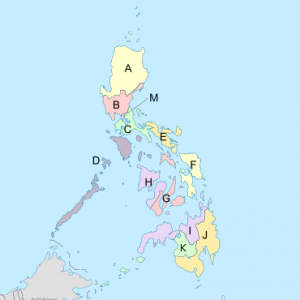
One of the main campaign promises of then-presidential candidate Rodrigo Duterte was to push for federalism in the Philippines. He claims that it will make the delivery of basic services faster, and it is the only solution to the secessionist problem in the southern Philippines.
The word “federalism” traces its root to the Latin foedus, which means pact or covenant. Apparently so does the word, “confederalism”. Another root word found in dictionaries is the Latin fidelis, loyalty.
From the point of view of another language, the German word Eidgenossenschaft – which is the word used to describe the Swiss Confederation – literally translates to oath fellowship.
With these key words in mind, we ask: Where in our history does it show, that the Philippines is an entity formed by a pact, or oath fellowship?
As it stands, it is generally accepted that the Spanish explorer Ruy Lopez de Villalobos came up with the name Las Islas Filipinas in honor of the man who would eventually become King Philip II. Before the Philippines existed, you had several tribes who tolerated each other, occasionally tried to wipe each other out, most likely didn’t have a common language, and seemingly were content with minding their own businesses and fiefdoms.
The Philippines, as an entity is best described as…
…no more than an artificial state originally created by the Spanish crown mainly for the purpose of consolidating and streamlining colonial administration of its assets in the region. The former countries of Yugoslavia and Czechoslovakia, and now internally-unstable Rwanda, come to mind when one thinks of what the Philippines is all about — an agglomeration of fiefdoms that remain stuck together for the purpose of keeping alive nostalgic relics of 19th Century “nationalist” thinking and not for any real practical or measurable ends befitting a modern 21st Century society.
My impression of federal states, at this point, is that the bigger union, the bigger entity, has been well-defined, before the component entities go their own separate ways. In other words, the component entities have already come together to form a whole that is bigger than themselves. They see something in the federation/union worth becoming part of it for.
Do Filipinos have a history, a reputation for coming together, to make a bigger whole?
Unfortunately, the answer is no. Whenever Filipinos come together in contemporary society, they define themselves by their region first before anything else. They prioritize their own egos over the greater good, and are predisposed to think in terms of “me-first”. They tear each other down, and the resulting collective is smaller than any of the parts.
So, it seems that any history of coming together, forming a covenant, and establishing a bigger whole by themselves is virtually unknown in the Philippines.
Why then, are we federalizing under these conditions?
A phrase that seems to come up in the local discussions is, “break up into independent entities”. It seems to me then, that the move for federalism, despite having an ultimate intention of “empowering the regions”, is also pushing for the “kanya-kanya (to each his own)” framework that accompanies it.
But the prevailing framework is already kanya-kanya. The provinces are generally left to fend for themselves now (Visayas and Mindanao can more strongly attest to this), and are only called to attention when something is needed from them. Or when a celebrity hails from a particular locale.
What makes that framework any different from the already prevailing mentality? Why are we going to undertake a costly change in system, if the mentality remains relatively unchanged?
Breaking up one big nothing, results in, well…nothing! Zero divided by x is still zero!
In my opinion, the advocates for federalism are pushing a solution, and expect it to be successful in a top-down fashion. But real and lasting solutions to a society’s problems are directed at the root. And the root here goes deeper than the awful setup found in the country’s body of laws; it goes straight to the dysfunctional culture of Filipinos, a society of people that, quite simply, never could come together on their own.
The push for federalism is aimed at solving political and economic imbalances found in the current system. But the cultural component needed to make federalism work, at least the way it has worked in other countries, is seemingly not present here.
I guess, a question that really must be asked, and evaluated thoroughly, is:
Can a socio-cultural problem be solved by political means?
Filipinos need to plan their next steps carefully. The environment for change is already there; it is up to them whether this change will be ultimately beneficial or not to them.
http://www.getrealphilippines.com/blog/2016/12/questions-must-asked-talk-federalism-philippines-starts/

No comments:
Post a Comment